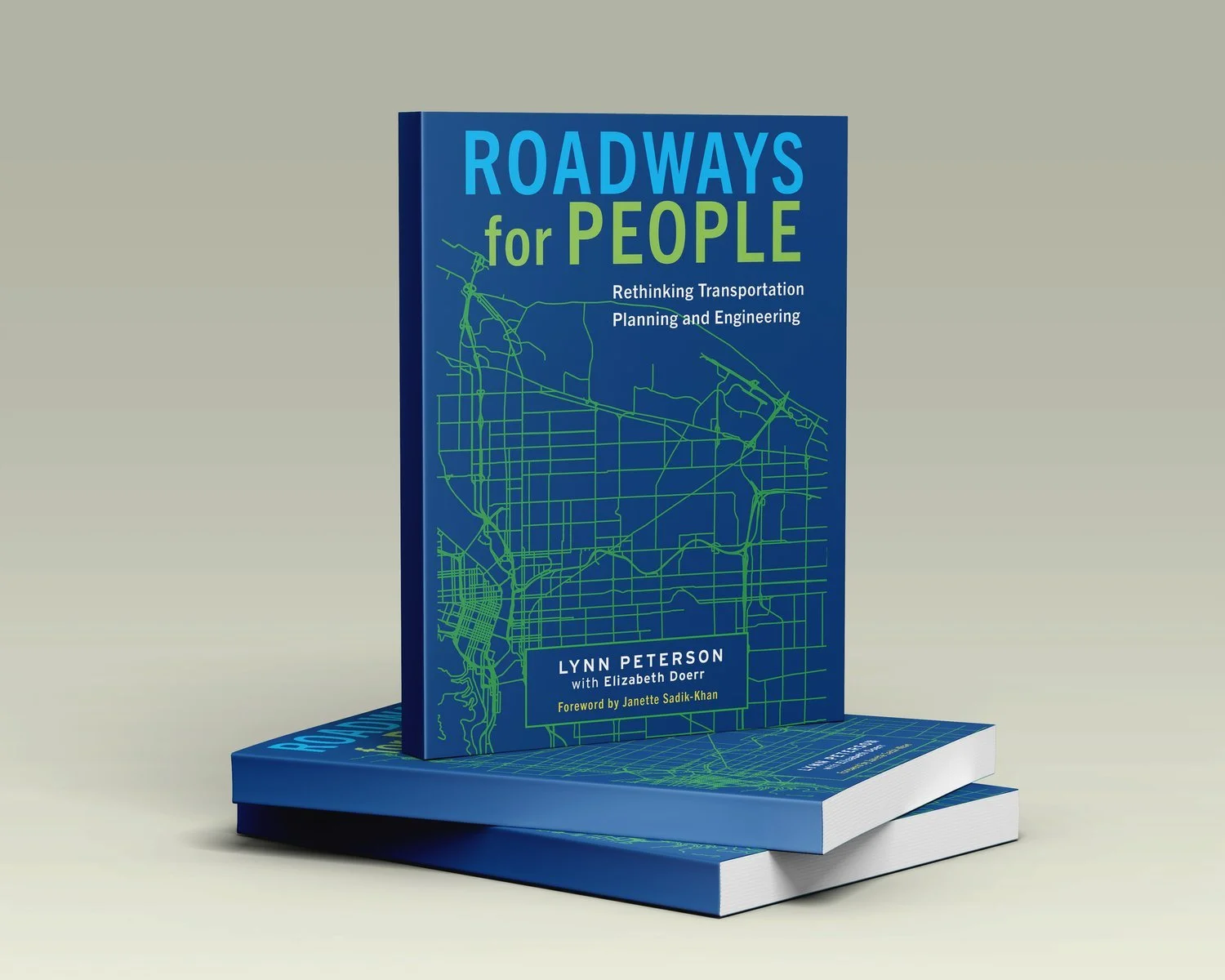Roadways for People is a roadmap for transportation professionals who want to help make communities more livable, accessible, and just.
Through years of training and education, transportation engineers and planners are experts in their focus areas. Their expertise is essential to creating well-thought-out and safe transportation solutions. But the key to channeling this expertise in the right direction is to listen to the people who travel in and around their communities. People are the experts on their needs, desires, and values. But many of us in the transportation field were not necessarily taught about how to work with the communities we serve or how to collaborate effectively with other professionals in the field. Roadways for People provides a roadmap on how planners and engineers can create transportation solutions for people through a community solutions-based approach that involves racial equity, collaboration, and community engagement at all levels of the work through a community solutions-based approach.
The Approach
Roadways for People outlines an inclusive, community-centered approach to thinking about how we move through the places we live, play, and work.
What is a community solutions-based approach?
Throughout most of the 20th Century, this car-only approach was the predominant approach to transportation policy, planning, and design which resulted in a patchwork of dislocated communities cut off from opportunity. It was an approach that mostly favored the wealthy.
Throughout the last two decades, innovators and visionaries in transportation planning and engineering began to change the conversation to favor approaches that involved communities in the planning process. Roadways for People brings these inclusive approaches together into a practical framework that transportation professionals can use.
“Seventy years of a car-only approach—not car-centric, it’s car-only—is actually not just non-driver hostile, it’s driver hostile. No one benefits from it, even the driver gets harmed by it. It has all these negative effects in that it cuts everyone’s opportunity to participate in the economy and essential services.”
–Beth Osborne, Director of Transportation for America

